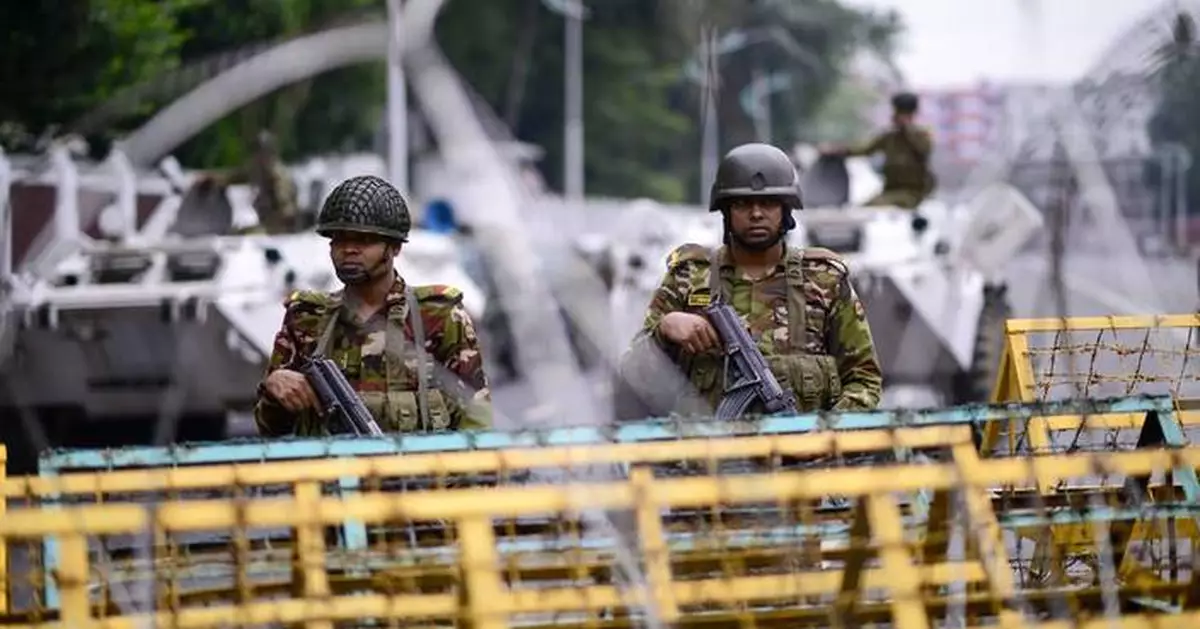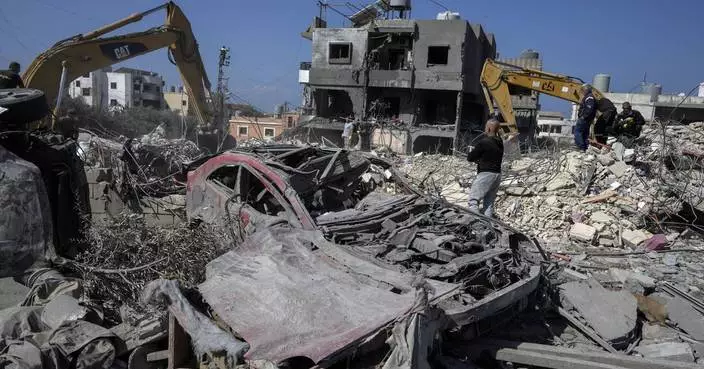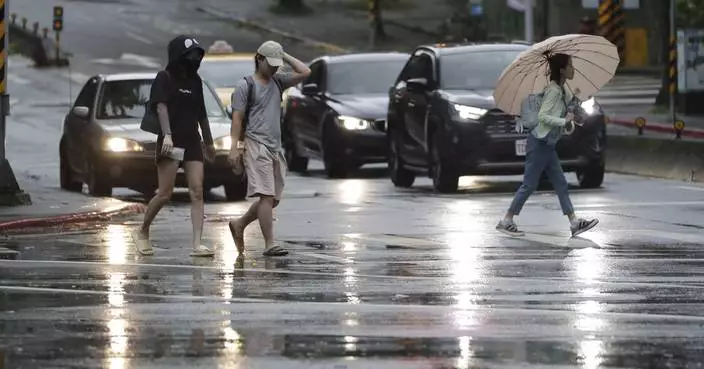DHAKA, Bangladesh (AP) — Attackers set fire to the headquarters of a Bangladesh party that supported the country’s ousted leader Sheikh Hasina on Thursday night, media reports said. There was no information if anyone was injured.
No one immediately claimed responsibility for the attack on the Jatiya Party offices in Bangladesh’s capital, Dhaka. TV stations and other media said the attackers stormed the party headquarters in Dhaka’s Bijoy Nagar area, clashing with party members who were there and eventually setting the premises on fire.
The extend of the damage was not immediately known. Firefighters rushed to the scene, according to Rashed bin Khaled, an official of the Fire Service and Civil Defense. Bin Khaled, who spoke to The Associated Press by phone, had no other details.
The party is Bangladesh’s third largest and was founded by former military dictator H.M. Ershad in the 1980s.
As the attack was underway, a prominent leader of a student protest movement that led to Hasina’s ouster in August said the Jatiya Party should be “destroyed” for its support of her government.
Hasnat Abdullah, the student leader, claimed in a Facebook post that the Jatiya party was “a national betrayer.”
Abdullah is from the Anti-Discrimination Student Movement, which spearheaded the July protests. He also urged students to gather at the Dhaka University and march toward the Jatiya Party headquarters.
Mujibul Haque Chunnu, the party's secretary general, blamed the students for the attack. “People are watching what they are doing with us,” he said. “It is live in social media ... they are doing it publicly, openly.”
Hasina’s Bangladesh Awami League party ruled the country for 15 years, since 2009. Her critics said the Jatiya Party had acted to give Hasina's rule a veneer or democracy as other major political parties did not take part in the elections.
Hasina fled the country to India on Aug. 5, after the student-led demonstration morphed into an anti-government protest movement. Hundreds of students, security officials and others were killed during the turmoil.
Later, hundreds more, including Hasina’s supporters, were killed in revenge attacks or in mob violence across the South Asian nation. She now faces arrest warrants for the killings in July and August.
Muhammad Yunus, a Bangladeshi Nobel laurate, took over as head of an interim government backed by the student group and the country's influential military in August.
However, his administration has struggled to restore order.
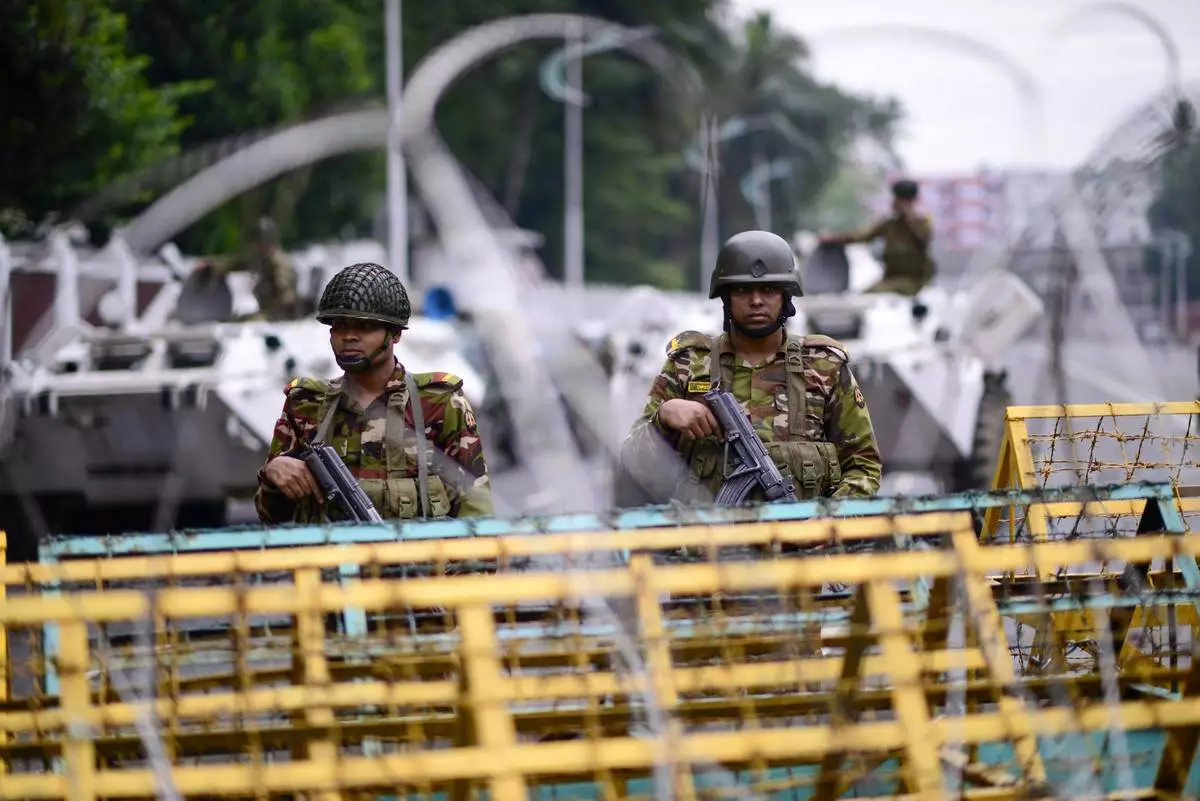
Bangladesh army personnel stand guard behind barbed wire and barricades at the entrance of the residence of President Mohammed Shahabuddin after his comments on Prime Minister Sheikh Hasina triggered fresh protests in Dhaka, Bangladesh, Wednesday, Oct. 23, 2024. (AP Photo/Mahmud Hossain Opu)
NAIROBI (AP) — Western envoys in Kenya have raised concerns over reports of arbitrary arrests and enforced disappearances and urged swift investigations as the country takes up its seat on the United Nations Human Rights Council.
In a joint statement on Thursday, the nine ambassadors and high commissioners said they “will support Kenya in corralling the political will necessary to effect change.”
Human rights groups have accused the authorities in Kenya of arbitrarily arresting and detaining government critics, while several people have been reported missing and, in some cases, their mutilated bodies discovered days later.
Kenya was among several African countries elected to the U.N human rights council on Oct. 9.
The envoys’ statement comes days after four Turkish nationals were abducted from Kenya and repatriated despite registering with the U.N as asylum seekers, citing threats to their lives back home.
“Abduction and forced return to countries they fled directly violates the principle of non-refoulement enshrined in Kenyan law,” Amnesty International Kenya wrote in a statement last week.
Under international law, non-refoulement prohibits the return of any person to a country where they would face torture, cruel, inhuman or degrading treatment, or other irreparable harm.
The Kenya National Commission on Human Rights on Thursday said it had investigated 60 cases of extrajudicial killings and 71 cases of abductions and enforced disappearances since June.
The country witnessed a series of nationwide anti-government protests that culminated in the storming and burning of parliament on June 25, when several protesters were shot dead outside parliament gates.
The police on Wednesday said that 97 women had been killed by men in the last three months and he highlighted an increase in gender-based violence.
The deputy inspector general of police, Eliud Kipkoech Langat, said there had been an increase in murder and manslaughter cases and called it a “troubling trend.”
The latest killings involve three women who went missing. Their bodies were last week discovered mutilated and dumped in different areas.
In July, the dismembered bodies of nine women were found in a quarry in the capital, Nairobi. A male suspect was arrested and detained as investigations continued but he later escaped from police custody.
The government has in recent days been accused by human rights groups of using arrests and abduction to crack down on critics.
A popular activist, Boniface Mwangi, was on Sunday detained by men who refused to identify themselves. He was held at a police station for a day and later released without charge.
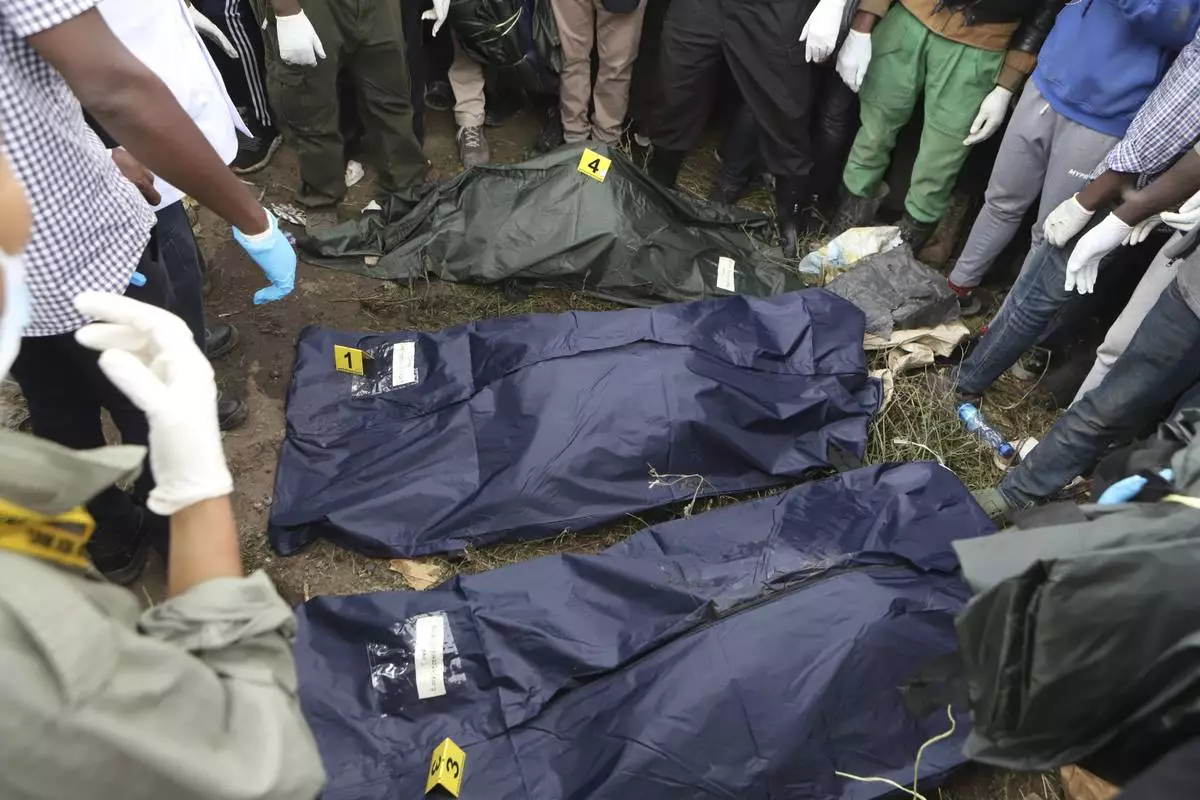
FILE - Sacks with human remains are seen after being removed from a quarry in Mukuru Kwa Njenga area in Nairobi, Kenya Saturday, July 13, 2024. (AP Photo/Andrew Kasuku, File)



